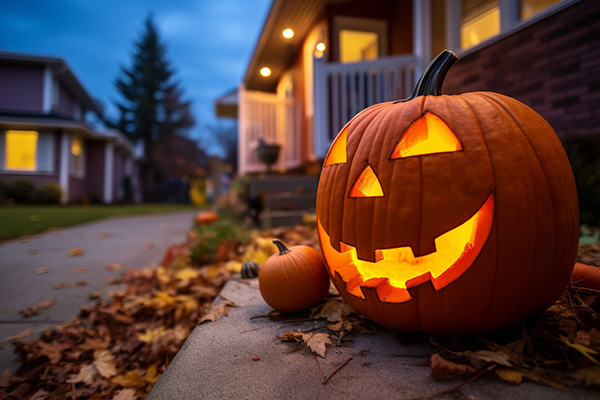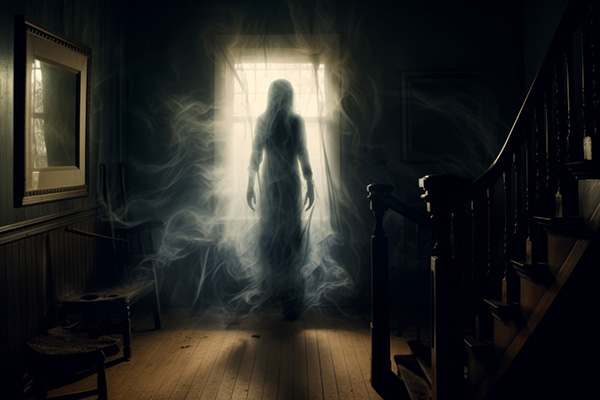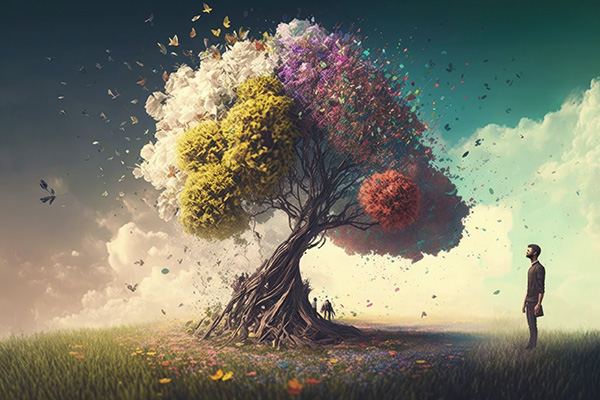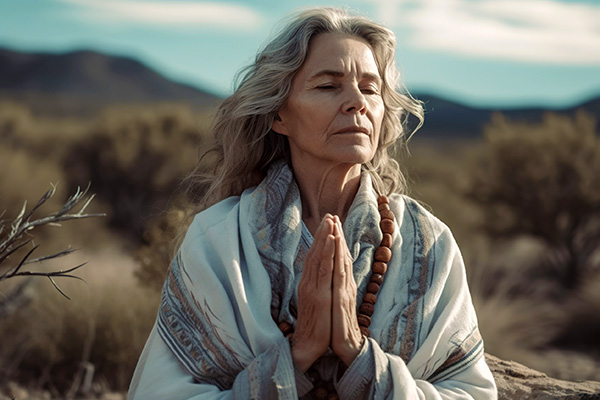dogma
Rediscovering Prayer As A Personal Practice
 “Prayer” can be a complicated concept for some people, especially when it carries associations with dogma or specific religious traditions.
“Prayer” can be a complicated concept for some people, especially when it carries associations with dogma or specific religious traditions.
On a spiritual path, not everyone relates to a higher power in the same way, and we all experience the sacred or the divine through diverse and deeply personal lenses.
However, no matter how we personally view it, prayer can hold a very meaningful place in any spiritual practice.
As my own spiritual awareness deepened, I came to see God not as a distant figure watching over the world, but as a vast creative presence, an energy that flows through all life. Some connect with this presence as “the universe,” others as their higher self, their guides, or a field of eternal love and light.
I have moved through many of these perspectives myself, and each has offered me unique insights. Over time, returning to the broader concept of God reopened a space of comfort and peace within me, especially through the practice of prayer.
When I was a child, prayer felt natural. It brought reassurance and warmth. Reconnecting with it later in life has brought that same sense of grounding and clarity.
Prayer can be understood as a conversation with God, Source, Spirit, the Divine, with one’s soul, or with the deeper wisdom that resides within and around us. Continue reading
The History And Hidden Blessings Of Halloween

As a child, I remember getting excited about dressing up as a witch on Halloween and enjoying all the treats, like toffee apples and spooky cakes, that my mom used to make.
But one year, my father ruined the holiday for me when he explained his views on the significance of Halloween to me. I was just 10 years old, and it upset me.
Because of his religious beliefs, my father then forbade my siblings and me from celebrating Halloween. This made us feel excluded from our community as we watched other children dress up and enjoy themselves.
As an adult, I learned that it was not the event itself that was the issue, but rather the assumed F.E.A.R. behind it: False Evidence Appearing Real.
Remembering those times recently, I was prompted to take another look into the origin of this holiday tradition and what it truly stands for.
On 31st October each year, the Celtic pagan festival known as Samhain is celebrated, symbolizing the end of the harvest period and the start of the winter season, sometimes referred to as the “darker half” of the annual 12-month cycle.
Long before it became a night of costumes and candy, it was a sacred festival rooted in ancient spiritual tradition. The celebration we now know as Halloween traces its origins to Samhain (pronounced Sow-in), a Gaelic festival that marked the end of the harvest and the beginning of the dark half of the year.
A Fabulous Life Beyond Limiting Beliefs
 Many people go through life without ever questioning, let alone challenging, the limiting beliefs they were taught since childhood. They blindly follow whatever their family, community, or culture prescribe, often without realizing it.
Many people go through life without ever questioning, let alone challenging, the limiting beliefs they were taught since childhood. They blindly follow whatever their family, community, or culture prescribe, often without realizing it.
Some of these limiting beliefs have been passed down through generations, remaining unchanged for thousands of years. If we never stop to examine these inherited mindsets, we remain trapped in limited thinking – always confined within the box.
I often find people are stuck in the emotional patterns and thought habits of their parents or grandparents.
For example, those whose families lived through the Great Depression, or who endured scarcity of food, heat, or other basic necessities, may feel compelled to save everything.
What if I need it someday? I paid so much for it, and it’s still perfectly good to keep. What if… what if…
A good example here where I live in the state of Maine is when an old Northeaster storm is supposed to come, bringing in double digit inches of snow.
Some folks then panic and rush to the nearest grocery store and stock up on two or three of the same items, because what if I can’t get out again for two weeks? Which, as a matter of fact, has never happen in my lifetime! Realistically you may only be marooned a day or two at the most in most parts of Maine.
How To Deal With Spirit Presence In Your Home
 Spirit energies are around us all the time in all shapes and forms. Many people have experienced, or at least know someone who has, a spirit presence or paranormal activity in their home.
Spirit energies are around us all the time in all shapes and forms. Many people have experienced, or at least know someone who has, a spirit presence or paranormal activity in their home.
These encounters can range from subtle to intense, and the nature of the experience often varies greatly depending on the person’s beliefs, fears, and openness to the supernatural.
For some, the presence of a spirit is a source of terror, while for others it is a comfort, like being in the presence of an old friend. Then there are those who scoff and laugh at the very idea that a ghost could exist.
These varied responses highlight an important question: why do people have such different experiences with spirits?
In my experience, it depends on two main factors: a person’s beliefs and attitudes about spirituality and the supernatural, and the nature of the spirit presence itself, whether it is benevolent or malevolent.
My grandmother came to me within three days of her death to tell me she was okay. She gave me a sense of peace and I didn’t see her again. Years later, my mother also came to me to tell me that she was okay and that all was well where she was. It was also a one-time visit.
But with my stepson, who committed suicide, and my father, it was different. He started showing up at his former house (he had left a wife and two beautiful boys) on a regular basis. He would turn on the lights or the faucet. In the middle of the night she would hear our grandchildren talking and giggling in one of their rooms. They were only two and three years old when he died. She went to investigate, thinking they were up to no good, but only one of them was in the room. When she asked who he was talking to, her boy said, “Daddy was here.”
A Christian Mystic’s Guide To Dealing With Pain
 Our search for the meaning of pain, hardship, and suffering is a profound and enduring human endeavor.
Our search for the meaning of pain, hardship, and suffering is a profound and enduring human endeavor.
Throughout history, our spiritual beliefs and religious teachings have helped us understand and find meaning in life’s challenges and painful experiences.
These interpretations provide comfort, guidance, and a sense of peace in the face of adversity as we learn that suffering has a purpose or can lead to spiritual growth, enlightenment, or a deeper connection with the divine.
Our spiritual quest to better understand pain is driven by a deep desire to make sense of life’s challenges and to discover how these difficult experiences fit into the larger tapestry of our existence.
Religions and spiritual wisdom traditions around the world offer different perspectives on pain and suffering, each with its own explanation for why these experiences occur and how they should be approached or understood.
These diverse perspectives all share certain common threads: that the origins of pain and suffering lie in the concept of duality; that there is meaning to be found in suffering; and that through faith, reflection, and spiritual practice we can transcend the pain caused by duality and connect with something greater than ourselves.

